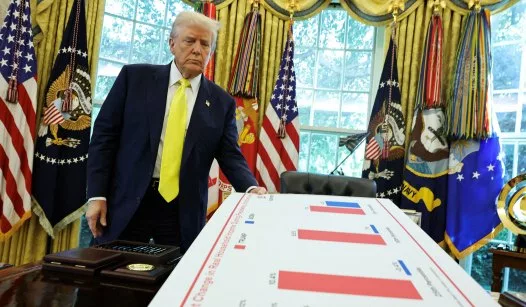In recent political developments, former President Donald Trump has been making headlines with his attempts to leverage statistics to bolster his narrative. As he gears up for the 2024 presidential election, understanding his approach to data and public perception is crucial for voters seeking clarity in the political landscape.
Trump has a history of using statistics to support his claims, whether it’s about the economy, crime rates, or immigration. His recent speeches and social media posts reflect a concerted effort to frame his narrative in a way that resonates with his base. By selectively presenting data, he aims to emphasize his achievements during his presidency while downplaying any negative aspects. This tactic is not new; many politicians have employed similar strategies to sway public opinion. However, Trump’s unique style and the polarized environment make his approach particularly noteworthy.
For instance, he often cites economic indicators like job growth and stock market performance, attributing these successes directly to his policies. Critics argue that such claims overlook the broader context, including the impact of the COVID-19 pandemic and subsequent recovery efforts initiated by the Biden administration. Nevertheless, Trump’s supporters find these statistics compelling, reinforcing their belief in his leadership.
Moreover, Trump’s engagement with statistics extends beyond traditional economic metrics. He has also delved into issues like crime rates, often highlighting increases in certain areas while ignoring broader trends. This selective use of data can mislead the public and create a skewed perception of reality. As voters prepare for the upcoming election, it’s essential to critically evaluate the statistics presented by all candidates and understand the context behind them.
In addition to Trump’s statistical maneuvers, another intriguing topic has surfaced in the political arena: the concept of a “nuclear moon.” This phrase has sparked discussions about the potential militarization of space and the implications for national security. While it might sound like science fiction, the idea of deploying nuclear capabilities in space raises significant ethical and strategic questions.
The notion of a nuclear moon suggests a future where nations could establish military bases on celestial bodies, potentially using them as platforms for launching attacks or defending against threats. This concept is not entirely far-fetched, as advancements in space technology and international tensions have led to increased interest in the militarization of space. Countries like the United States, Russia, and China are actively developing their space capabilities, and the prospect of nuclear weapons in space adds a new layer of complexity to global security.
As discussions around the nuclear moon continue, it’s crucial for citizens to stay informed about the implications of such developments. The intersection of space exploration and military strategy could redefine international relations and raise questions about the balance of power in the 21st century.
In conclusion, as the political landscape evolves, understanding the strategies employed by candidates like Trump and the broader implications of emerging concepts like a nuclear moon is vital for informed citizenship. Voters must navigate a complex web of statistics and geopolitical considerations as they prepare for the upcoming election. By critically engaging with the information presented, citizens can better understand the challenges and opportunities that lie ahead in the realm of American politics.
